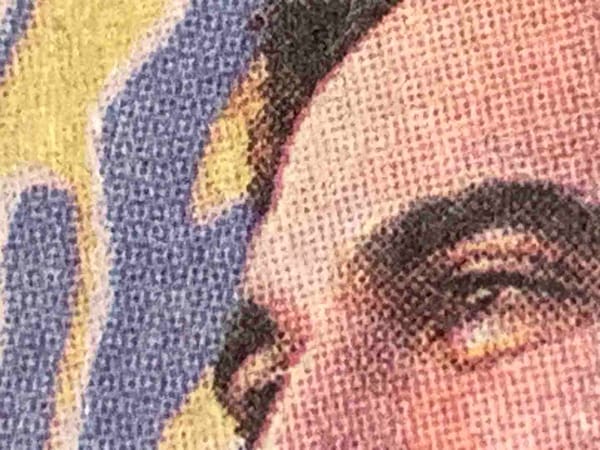Indignity Vol. 1, No. 37: Our speculative future.
BUSINESS DEP'T.

Wait, Why Is Elon Musk the Richest Person in the World?
ELON MUSK, THE memelord business titan, is the wealthiest person in the world. That's a background fact now. He got in a Twitter fuss about whether he should pay any taxes on his wealth, and it escalated to his saying something juvenile to Sen. Ron Wyden, who backs the idea of taxing billionaires, and people tweeted about how appalled and/or delighted they were that world's richest man could act that way toward a United States senator.
What do people expect of the richest person in the world? And why would anyone expect it of Elon Musk? Musk is who he's always been, though he may be spiraling into a more and more extreme version of it. The question nobody really seems to be stopping to ask is: why is this person wealthier than every other person on Earth?
The surface answers are that a.) the No. 1 spot opened up when Jeff Bezos got divorced, and b.) Musk's electric-car company, Tesla, was selling for more than $1,200 a share when the markets closed on Friday, up from a circa-2019 price around $60 a share.
That price wobbled a little on Monday because Musk's tax tweets also involved his setting up a poll to decide whether he should sell 10 percent of his Tesla holdings, and having the users decide he should. But it stabilized, because Elon Musk doing erratic things on Twitter is built into the price of Tesla by now; there's a case to be made that it's the basis of the Tesla price.
There aren't really any better explanations for why Tesla, a niche car manufacturer that isn't very good at fitting pieces of cars together, is more highly valued than the world's nine largest automakers combined. Tesla's most reliable source of profit in real business terms has not been selling its own cars, but selling other, bigger car companies the carbon-reduction credits generated by its electric vehicles. How do you become the world's most valuable car company with a business model that depends on the money produced by the other car companies that are operating at a larger scale? It's as if a company selling fryer baskets to McDonald's were worth more than McDonald's itself. (If those fryer baskets also tended to fall apart, and sometimes killed people.)
People have always been able to get rich doing nonsensical things, especially if they're entertaining while they do it. But there's a difference between making a personal fortune off flimflam and a devoted fanbase, and making the largest fortune in the entire world. Isn’t there?
Whatever you think of Elon Musk—even if you believe he is a true visionary with the potential to transform civilization and redistribute life around the solar system—how is it possible for him to be worth more money than any other person engaged in every other money-making activity, throughout the global economy? Besides being a boutique automaker, he's co-founder of one very successful tech startup, PayPal, and he's a competitor in the privatized space-launch field, and he's a cryptocurrency speculator. All of that seems in principle like it ought to add up to "the portfolio of a fairly rich person," not "the world's supreme business empire."
Yet money flies around at Musk's command. Is it good, or even sensible, that things work this way? As someone with largish holdings of a completely worthless crypto token, I understand that Musk would have the power, with a single tweet, to make me richer than anyone in my entire family line—and then to unmake that fortune before I could figure out where I left my crypto wallet. This power resides in someone so absurd that I made it to lunchtime thinking about his fortune before I even remembered the time he brought out a human dancer in a badly fitting bodysuit and eyeless mask to inspire interest and confidence in his announced desire to get into robot-building. That brought me, in turn, to the recollection of the time Tesla tried to demonstrate the indestructible windows on Musk’s Cybertruck prototype and managed to destroy a window.
What would happen if every concern held by the richest person in the world disappeared? If Bezos, the second-richest, suddenly shut down his operations, you would notice in seconds. A big swath of the internet, supported by Amazon, would go down; the movement of goods through the consumer economy would lock up; more than a million people would be instantly out of work. But if Musk's contributions stopped, there'd probably be some traffic jams as a minor percentage of the cars on the road suddenly bricked, and 5G satellite service timetables would presumably go out of whack, and not much else.
With or without Musk, there would still be a growing market for electric cars. When I went to the Bloomberg page for the story of Musk's weekend tax tweeting, I got an ad for the Polestar 2, a new high-performance electric car brand from Volvo, presumably built with input from Volvo's safety engineers. There's nothing indispensable about Tesla now, if there ever was.
But Elon Musk is valuable because he represents faith in the future, and the easiest way to have faith in the future at the dawn of the 2020s is to stop believing in causes and effects. You can accuse a stranger of being a "pedo guy" on Twitter in front of millions of followers and not lose a defamation suit. You can claim to be on the brink of self-driving cars while selling people an "Autopilot" feature that can't automatically pilot away from crashes. You can propose toy-grade tunnel systems offering near-zero passenger throughput, built with century-old technology, and win municipal transit contracts to create them. It's vibes and vaporware. It's the single most lucrative thing a person can do today.







